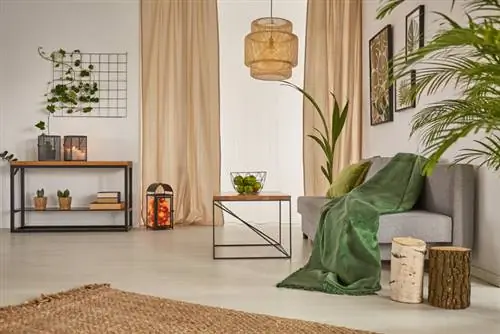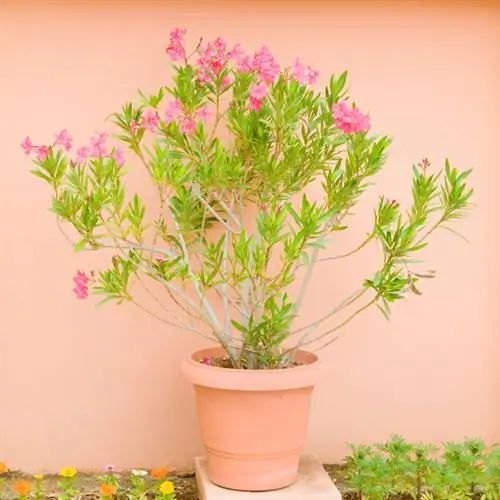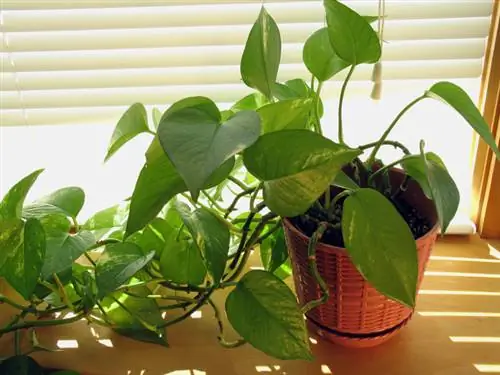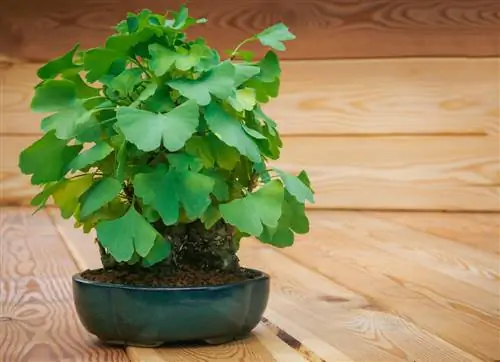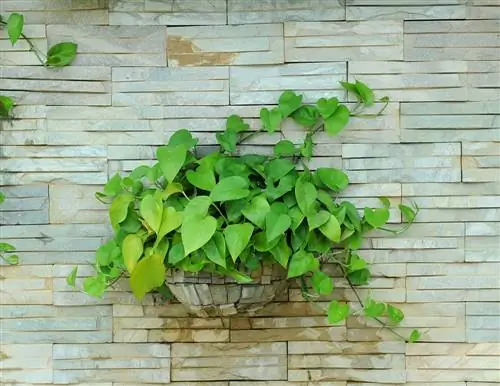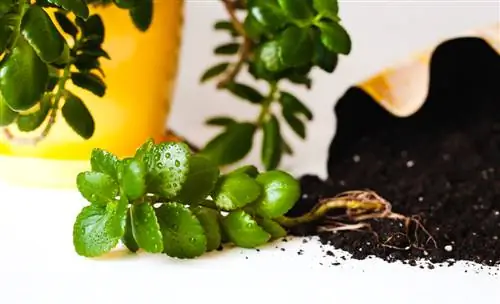- Author admin leonars@hobbygardeners.com.
- Public 2023-12-16 16:46.
- Last modified 2025-01-23 11:20.
While ivy in the garden requires almost no care, the climbing plant needs a little more attention as a houseplant. Indoors, it is preferred to grow colorful leafy varieties that are less hardy but can tolerate more sun. How to care for ivy in the house.
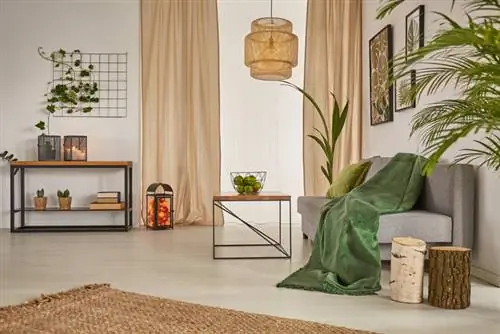
How do I properly care for ivy as a houseplant?
Ivy as a houseplant requires a bright location, regular watering with lukewarm water, fertilizing every 14 days, annual repotting and should be kept away from children and pets. Direct sunlight and waterlogging should be avoided.
The right location for ivy
Ivy that you want to care for indoors needs, above all, a suitable location. The colorful varieties tolerate more light than the common ivy in the garden. But they only like direct sun to a limited extent. If the ivy is in the flower window, you need to protect it from the midday sun.
How to care for ivy indoors
- Pouring
- fertilize
- cutting
- repotting
- overwintering
Water and fertilize regularly
When caring for it as a houseplant, you need to pay particular attention to ensuring that the soil is always a little moist. Waterlogging, however, is harmful. Water the pot whenever the surface of the soil has dried. Make sure there is a sufficiently large drain hole so that excess water can drain away.
Water with lukewarm water if possible. This is better for the ivy than water that is too cold.
Unlike outside, ivy needs regular fertilizer inside. Fertilization is carried out with standard liquid fertilizer (€14.00 on Amazon) every 14 days from March to September. Apply slightly less fertilizer than recommended on the package. If the plant receives too many nutrients, the shoots will rot and the plant will die.
Repot ivy annually
Treat the ivy with fresh soil every year. To do this, repot the plant in spring. Before repotting, cut them into shape. By the way, cutting is possible at any time.
Remove all old soil and, if necessary, place the plant in a larger pot.
Overwinter ivy indoors
Indoor varieties are often not hardy or only partially hardy. They are cultivated all year round at consistent temperatures.
Do not place the pots close to radiators in winter. The earth then dries out too quickly.
Tip
Make sure that neither children nor pets get near the ivy. All parts of the plant are poisonous. Even skin contact can lead to inflammatory diseases.

